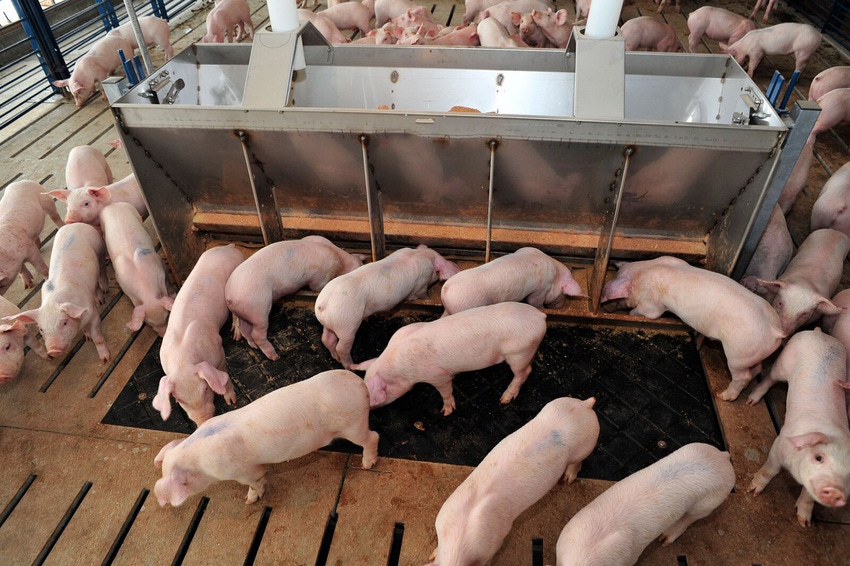A separate FFAR-funded grant at Kansas State University will build on this research to test whether the additives can be added to feed to protect against African swine fever.
July 10, 2019

Initial results from a study conducted by Pipestone Applied Research have shown that five commercially available feed additives may stop the spread of three deadly viral diseases in pigs. Scott Dee, research director at Pipestone Applied Research, presented the results of the first phase of the study, supported through a Foundation for Food and Agriculture Research grant, during the National Pork Industry Conference in the Wisconsin Dells this week.
Porcine reproductive and respiratory syndrome, porcine epidemic diarrhea and Seneca Valley A endanger animal welfare, cost the U.S. swine industry hundreds of millions of dollars annually and threaten the global food supply. These diseases can also spread through contaminated animal feed.
In this study, the Pipestone team tested whether specific feed additives, or mitigants, can deactivate the viruses and reduce the spread of disease. Researchers introduced the three viruses into animal feed and then individually added five mitigants to the contaminated animal feed. The research team then tested the pigs at day 6 and day 15 for the presence of the three viruses and evaluated the animals for signs of disease. Despite the presence of PRRS, PED and SVA viruses in the feed, the mitigants protected almost all animals from becoming positive for infection by PRRS, PED and SVA and significantly reduced the number of animals that developed signs of disease.
This study is one of the first to produce results in a research setting that replicates commercial conditions. Dee and collaborators suggest that pork producers consider using these mitigants to protect herds against these diseases.
“These results are a huge step forward in helping swine producers protect their animals from devastating diseases,” says FFAR executive director Sally Rockey. “This research helps producers control the spread of these diseases and improve health outcomes, all without antibiotics.”
Later this year, a second phase of the research will test five additional mitigants to assess their effectiveness in protecting swine herds from PRRS, PED and SVA. A separate FFAR-funded grant at Kansas State University will build on this research to test whether the mitigants can be added to feed to protect against African swine fever, a disease without a cure, which has decimated the Chinese pork industry and was recently detected in Europe. ASF virus can cross continents in contaminated feed ingredients. Scientists hope to understand how to control, or even stop the spread of this deadly virus.
“Pipestone Applied Research is excited to collaborate with FFAR. We are working to deliver a solution to the risk of the domestic and transboundary spread of viruses in feed,” says Dee.
Dee’s team received a grant through FFAR’s Rapid Outcomes from Agricultural Research program, which deploys funds research funding in response to emerging or unanticipated threats to the nation’s food supply or agricultural systems. The grant is being matched by ADM Animal Nutrition, Anitox, Kemin Industries, PMI Nutrition Additives and Swine Health Information Center.
Source: Foundation for Food and Agriculture Research, which is solely responsible for the information provided, and wholly owns the information. Informa Business Media and all its subsidiaries are not responsible for any of the content contained in this information asset.
You May Also Like



